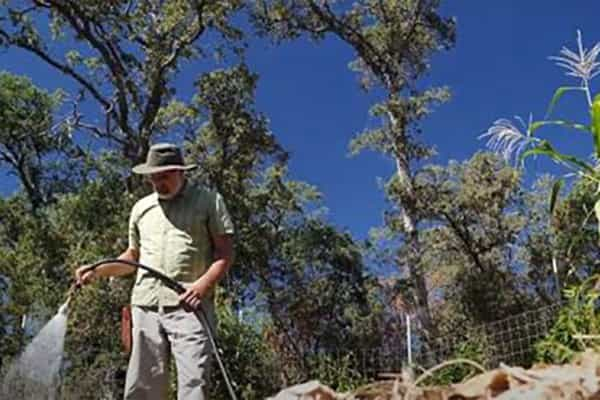The Benefits Of The Certified Lab-Tech Program

Work from Home
You can complete all three steps within a few weeks and begin generating an income from home! Once you are proficient, you should be able to perform an assessment and write-up the report in under an hour. Some Certified Lab-Techs charge around $120-$150 per sample.
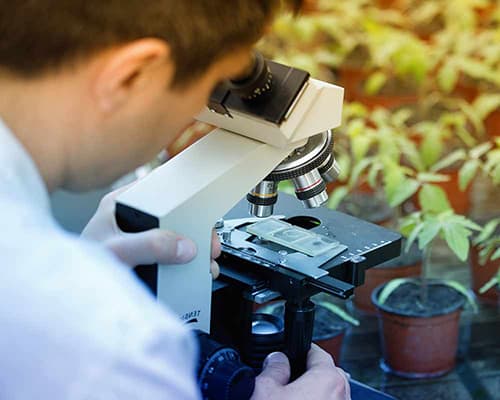
Stepping Stone
If you are planning to become a Soil Food Web Consultant this is a great way to start, because the farmers that you perform assessments for may become future clients for your consultancy business! This can also allow you to generate an income that could be used to fund your CTP.
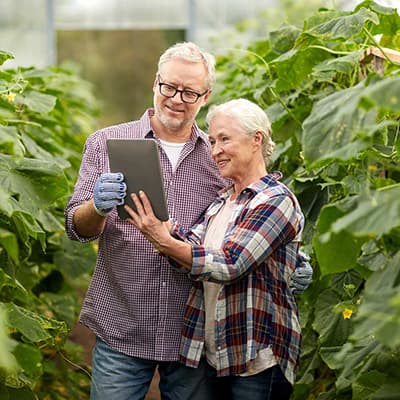
Great Exposure
As a Certified Soil Food Web Lab-Tech, you will be featured on our website where farmers, growers and compost producers can find you. One of the first things that farmers do when they find out about the Soil Food Web Approach, is have their soil tested. This is a great way to initiate conversations.
Brian used to work in IT.
He pivoted to his passion.
He’s now running his own successful business as a Soil Food Web Consultant and testing soil samples out of his home.
The Certified Lab-Tech Program Contents:
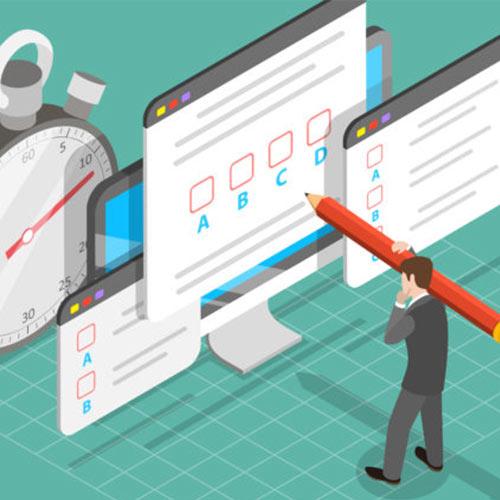
Prerequisite
You must complete the Foundation Courses first, with a 90% average.
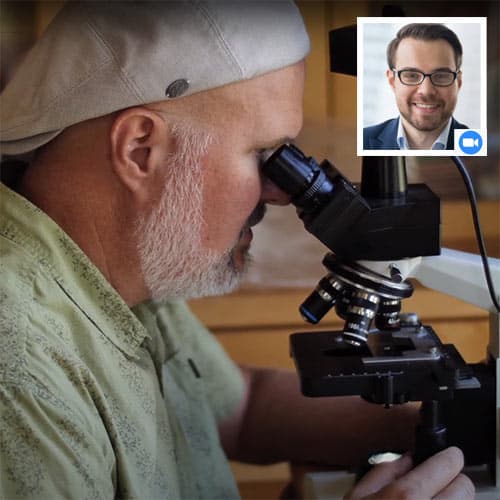
One-on-One Microscopy Training
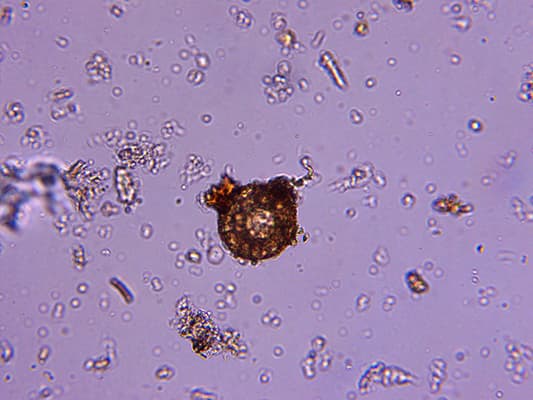
Microscopy Assessment
Here's what's included in the Certified Lab-Tech Program
1-on-1
Microscopy Training
How to Launch Your Lab Guidebook
Certification Assessment
Referral Network
Certified Lab-Tech Program FAQs
Is the Certified Lab-Tech Program included in the Consultant Training Program?
Yes, it is. CTP students are required to complete the CLP in Stage 1 of the CTP. Click here for more info.
What kind of equipment will I need to buy in order to take the CLP and run a lab? How much will it cost?
You will need to buy a suitable microscope and microscope camera, as well as some ancillary equipment such as test tubes and slides, etc. Please take a look at this PDF for more information. You can buy a perfectly adequate microscope and camera for $500-$600 (please see the recommendation in the PDF)
How much money can I expect to earn?
That depends on you and how much effort you put into attracting new clients. You will need to identify and approach local farmers, growers and compost producers. We will provide you with information on how to improve your skills to do that and some tips from other Certified Lab-Techs that have been successful.
Where will I be featured on the website?
Your information including name, address (optional), email, and phone number will be featured on this page.
Can I charge whatever price I want for assessments?
The short answer is yes. Some Certified Soil Food Web Lab-Techs tell us they charge between $120 and $150 per sample, but there are no restrictions. Remember it will take you about an hour to complete the assessment and the report. It could be helpful to understand the specific market and area in which you are operating your lab and consider other factors such as chemical tests that clients may also be leveraging to better understand their landscape.
Will you recommend me to farmers?
We do receive inquiries from farmers, growers, and compost producers who want to have an analysis performed. Some just go straight to the website and find a lab-tech by themselves. We make recommendations based on proximity, so if someone in your region contacts us, we’d recommend you to them.
What if I fail the assessment?
You’ll get 2 attempts at taking the assessment. If you fail both times, there is a $210 fee to reset the MPAs. Then you will need to book some additional time with your mentor in order to review and then you’ll be able to retake the assessment. The CLP is a three-month program so in the event that a student has to purchase a resit; must be purchased within the timeframe of the student’s CLP and will be granted one month additional to complete all four exams.
What if I have never used a microscope before?
That’s not a problem. We have students from all backgrounds and this program is designed for beginners. Furthermore, our trained mentors will assist you as well as our online tools and resources.
Will I need to recertify?
Yes. All Certified Lab-Techs are required to recertify after 6 months and then every 12 months after that. The cost of recertification is $150.
How can I find or attract new clients?
We will provide you with information on how to improve your skills to do that and some tips from other Certified Lab-Techs that have been successful.
How much time do I get to complete the CLP?
Students typically require about 40 hours in order to complete the CLP at a reasonable pace. We expect that a student can complete the CLP in 1 month or less. The maximum time allowed to complete the CLP and the certifying assessment (MPA) is 90 days.
Do I need to complete the Foundation Courses before taking the CLP?
You’ll need to complete the Foundation Courses (FC) first, but that can be done in just 4 weeks, working full time. We advise students that they need between 120-150 hours to complete the FC, so 4 weeks is plenty of time if you are focused. You’ll have 12 months to complete the FC.
How does mentoring work?
Our highly skilled microscopy mentors will work with you online to guide you through your 8, one-on-one microscopy sessions. Each session builds on the skills you mastered in previous ones. You will need to practice and study in advance for each session. Our microscopy mentors are available Monday-Friday during normal business hours in many different time zones.
How long do I need to leave in between CLP mentoring sessions, in order to have adequate time to prepare for the next one?
Most students take one session per week. This would mean that you’d complete the sessions in two months and have one month for preparing and taking the MPA.
When will I receive the CLP Student Manual? IF CTP
You can access the student manual as soon as you enroll and are added to the waitlist. The manual is found in the CLP Student Course Page.To access it please log in to soilfoodweb.com and navigate to “My Courses” at the top of the screen, then select the CLP Course option. At the bottom of the page you will find the CLP Course Study Materials.
Will I need to recertify as a CLT?
Yes, we require CLTs to recertify initially six months after completion and then annually thereafter.
Will I get a chance to practice for my MPAs?
While this will depend on the pace you chose for the 1:1 sessions, since most students take one session per week, that means they have one whole month to prepare for and take the MPAs.
When do I start the MPAs?
First, you need to complete the homework, microscopy practice, and the 8 mentoring sessions with your assigned mentor. If you reach proficiency after you complete all 8 mentoring sessions, you will receive an email inviting you to begin taking the MPAs. If unable to demonstrate proficiency after the 8th session, you may have to submit additional practice to your mentor or sign up for extra mentoring hours.
When will I receive the CLP equipment list?
If you are actively enrolled in the CLP, CTP, or GTP go to the bottom of your course page and in CLP materials select Equipment List. If you are not enrolled in these Advanced Programs but would like to be, please reach out to [email protected] or enroll directly on the website.
I completed the CLP and I am currently a CLT, do I have to recertify? What happens if I dont?
Recertification is very similar to when you first took the MPAs, except that MPA4 is treated a little differently in that it is less of an exam and more of a one-on-one conversation to go over any CLP topics, SFW school updates, and provide feedback. As we do not currently have a platform built specifically for CLTs, it is a great opportunity to connect and to discuss if you are running a lab, how that is going, etc. You can delay your recertification, but please know that during the time that you are not certified, you will lose FC and CLP access. As the recertification email states, you will also be removed from the website as an active lab.
Can I request an extension for completing the CLP?
Yes. However, in order to grant an extension for completion, extenuating circumstances must be present. Please email [email protected] for assistance.
Can I pause my CLP program?
Yes. If you need to pause for 2 weeks or less, this can be done directly by your mentor. However, if you need to pause your program for a longer amount of time, extenuating circumstances must be present. Please email [email protected] for assistance.
My progress on the CLP doesn't show at the soilfoodweb.com website - is there an issue?
No, you can find your progress at: clp.soilfoodweb.com
Can I let my CLP recertification lapse and come back to it later?
Yes. However, you will lose access to the Foundation Courses and CLP Course materials.
If you choose to let your certification lapse, you won’t be actively certified, so you will lose the website listing, and, more importantly, you should not perform any commercial assessments during that time using the SFWS name. Once you recertify, you may have these benefits back.
Can I take the CLP along with someone?
No, our system is designed for 1:1 interactions so that we can certify you personally as having met our requirements.
For the CLP, do I get books or is it just the 8 sessions with a mentor and then I take the exams?
Upon entering the Certified Lab-Tech Program waitlist, you will receive the student manual, which will guide you through the course.
You will need to study the student manual and review lectures from the Foundation Courses, especially FC4. During the sessions, you will be assessed on the skills you should have practiced for it, ask all the questions that might have come up during your study time, and practice microscopy along with your mentor, putting special attention to the group of organisms or set of skills that were the focus of the session.
During the sessions, your mentor will also prepare you for the Microscopy Proficiency Assessments (MPA), which has four exams.
NO CLT Forum
We are looking into a longer-term solution for Certified Lab Techs like yourself who would like access to a Forum to ask non-ID questions.
I am a CTP/GTP student and I am up to recertify, do I have to? What happens if I don't? Can I delay my recertification?
As a CTP student, if you choose to let your certification lapse, you still keep access to Foundation Courses, CLP course materials, and CTP course materials appropriate to the stage in which you are in the program.
However, if you choose to let your certification lapse, you won’t be actively certified, so you will lose the website listing, and, more importantly, you should not perform any commercial assessments during that time using the SFWS name. Once you re-certify, you may have these benefits back. Additionally, it is important to note that you need to be a Certified Lab-Technician (CLT) to elevate from Stage 1 and graduate the program.
What are the benefits of remaining certified as a CLT?
As a Certified Soil Food Web Lab-Technician, you have the following benefits:
* You can advertise yourself as a Certified Soil Food Web Lab-Technician
* Listing on our website
* Continued access to the Foundation Courses, where new content continues to be added
* Continued access to the CLP course materials, including all updates
How do I purchase and complete my recertification?
Please click here to purchase your recertification. Then, log in to your account at clp.soilfoodweb.com to take the MPAs to recertify.
I completed the CLP, where do I find my certificate?
Your completion certificate is generated as soon as you complete MPA4 and can be found in the same place where you took the exams, clp.soilfoodweb.com.
Where can I view my completed MPA exams?
Previously completed MPA exams can be viewed in the same place where you took the exams: clp.soilfoodweb.com/assessments
What technical requirements does my microscope need to meet?
For Soil Food Web work, we use a standard biological compound light microscope. It should have a trinocular head; objective lenses with 4x, 10x, and 40x magnification; and an Abbe condenser. Microscopes come with 10x eyepieces as a standard, thereby providing 40x, 100x, and 400x total magnifications.
What technical requirements does my camera need to meet?
Your camera must provide a viewable area measuring at least 200 µm wide. It should provide detailed images and relatively smooth video, which is important for viewing moving organisms. Therefore your camera should be rated at least 5MP resolution, and should be equipped with USB 3.0 technology, connecting to a USB 3.0 port on your computer via a USB 3.0 cable. There are, however, cameras that perform well without the faster USB technology; for questions about particular models please contact the help desk.
Why is the camera field-of-view size important?
A small camera FoV introduces several difficulties. Because it offers a smaller space in which to conduct observations and generate data, it results in greater data variability. Techniques can be applied to compensate for this, but they increase the complexity, and therefore the time consumption, of the soil assessment process. A smaller FoV narrows the focal plane, making it more difficult to view microbes, especially when they are of larger size and/or motile. Therefore it also makes it impossible to capture the sort of high-quality images that are important in communicating with other technicians, with potential clients and the general public, and of course with your mentor/instructor.
How do I know whether a camera model meets the field-of-view-size requirement?
A camera that meets the requirements will most likely have C-mount threading, an industry standard. Many of these cameras are further packaged with a reducing, or wide-angle, lens attachment. These are usually 0.5x magnification, and in the case of most cameras, they ensure that the viewable aspect easily meets the required 200 µm width. Some cameras, typically those of lower resolution, are equipped to mount only on a tube like the ones that hold your eyepieces; these cameras will not meet the FoV size requirement.
What are the entry requirements for students to enroll in the Advanced Programs (AP)?
Students must complete the Foundation Courses (FCs) with 90%+ overall AND be enrolled (have purchased) at least one AP program which is the Certified Lab-Tech Program (CLP), Consultant Training Program (CTP), and Grower Training Program (GTP).
What do the different acronyms mean?
GTP – Grower Training Program
CTP – Consultant Training Program
CLP – Certified Lab-Tech Program
MPA – Microscopy Proficiency Assessment (exam to be taken at the end of the CLP)
FC – Foundation Course
Can I select a mentor of my preference?
Currently, mentors are assigned based on their availability and paired to students in relation to their time zones and language preference. All of our mentors are highly qualified.

